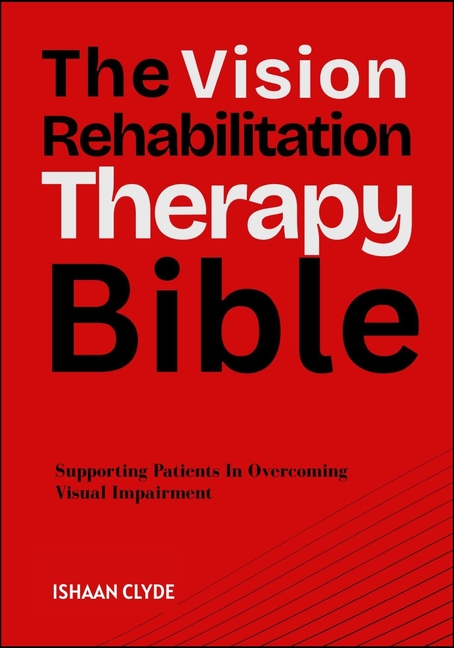Description
Vision is one of the most vital senses through which humans perceive and interact with the world around them. It enables us to recognize faces, navigate our environment, read, work, and engage in countless daily activities. However, vision loss or impairment can drastically affect an individual's quality of life, independence, and emotional well-being. For those experiencing partial or complete vision loss-whether due to congenital conditions, injury, disease, or aging-adjusting to this new reality can be challenging and overwhelming.
Vision Rehabilitation Therapy (VRT) is a specialized branch of rehabilitative healthcare that focuses on helping individuals with visual impairments maximize their remaining vision and develop alternative skills to lead fulfilling, independent lives. Unlike traditional medical or surgical treatments that attempt to restore sight, VRT recognizes the limitations of current restorative methods and instead concentrates on practical strategies, adaptive techniques, and assistive technologies to improve functional vision and daily living.
The Scope and Importance of Vision Rehabilitation Therapy:
Visual impairment is a global health concern, affecting millions of people across all ages and demographics. The causes of vision loss are diverse, including conditions such as macular degeneration, glaucoma, diabetic retinopathy, stroke-related vision deficits, traumatic brain injury, optic neuropathy, and various neurological disorders. As life expectancy increases worldwide, the incidence of age-related visual impairment also rises, making vision rehabilitation increasingly critical.
Vision Rehabilitation Therapy aims to bridge the gap between the medical management of eye diseases and the functional needs of visually impaired individuals. Its scope is comprehensive, encompassing assessment, individualized goal setting, skill training, environmental modifications, and psychosocial support. Through this holistic approach, VRT empowers patients to maintain or regain independence in activities like reading, writing, mobility, self-care, and social interaction.
Vision Rehabilitation Therapy represents a vital, patient-centered approach to managing vision loss. By focusing on what individuals can do, rather than what they cannot, VRT restores hope, independence, and dignity to millions worldwide. It bridges the gap between medical treatment and daily living, creating pathways for visually impaired individuals to thrive despite their challenges. As awareness grows and technology advances, vision rehabilitation will continue to evolve, offering new opportunities for enhancing lives and transforming the future of vision care.
Vision Rehabilitation Therapy (VRT) is a specialized branch of rehabilitative healthcare that focuses on helping individuals with visual impairments maximize their remaining vision and develop alternative skills to lead fulfilling, independent lives. Unlike traditional medical or surgical treatments that attempt to restore sight, VRT recognizes the limitations of current restorative methods and instead concentrates on practical strategies, adaptive techniques, and assistive technologies to improve functional vision and daily living.
The Scope and Importance of Vision Rehabilitation Therapy:
Visual impairment is a global health concern, affecting millions of people across all ages and demographics. The causes of vision loss are diverse, including conditions such as macular degeneration, glaucoma, diabetic retinopathy, stroke-related vision deficits, traumatic brain injury, optic neuropathy, and various neurological disorders. As life expectancy increases worldwide, the incidence of age-related visual impairment also rises, making vision rehabilitation increasingly critical.
Vision Rehabilitation Therapy aims to bridge the gap between the medical management of eye diseases and the functional needs of visually impaired individuals. Its scope is comprehensive, encompassing assessment, individualized goal setting, skill training, environmental modifications, and psychosocial support. Through this holistic approach, VRT empowers patients to maintain or regain independence in activities like reading, writing, mobility, self-care, and social interaction.
Vision Rehabilitation Therapy represents a vital, patient-centered approach to managing vision loss. By focusing on what individuals can do, rather than what they cannot, VRT restores hope, independence, and dignity to millions worldwide. It bridges the gap between medical treatment and daily living, creating pathways for visually impaired individuals to thrive despite their challenges. As awareness grows and technology advances, vision rehabilitation will continue to evolve, offering new opportunities for enhancing lives and transforming the future of vision care.
Last updated on
Product Details
- Jun 28, 2025 Pub Date:
- 9798290035109 ISBN-10:
- 9798290035109 ISBN-13:
- English Language




